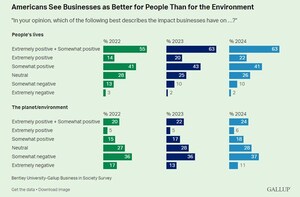WASHINGTON and WALTHAM, Mass., Aug. 12, 2021 /PRNewswire/ -- The high cost of medications in the U.S. has forced many American families to make difficult choices between paying for potentially life-saving medications or putting food on the table. U.S. consumers pay, on average, 2.5 times more than residents of other countries for the same medications. These prices are enabled in large measure by government-granted monopolies for new prescription products and a prohibition on the government's ability to negotiate a "fair market" price for drugs paid for by government.
For years, biopharmaceutical companies have justified their hefty price tags by arguing that reducing consumer costs would compromise their ability to discover and develop new products. During a recent Congressional briefing on drug pricing, however, Fred Ledley, M.D., director of Bentley's Center for Integration of Science and Industry, dispelled this "innovation myth," citing new research indicating the industry is "sufficiently robust to accommodate a decrease in drug prices without decreasing the number of new drugs coming to market."
In his remarks, Ledley, a professor of Natural & Applied Sciences and Management and former biotechnology executive, shared key findings from the Center's latest research, which was funded by West Health, a family of nonprofit and non-partisan organizations dedicated to providing high-quality, affordable healthcare for seniors. The research is described in the white paper: Will Reducing Drug Prices Slow Innovation? Strategic resource allocation can mitigate any negative impact of price controls.
Ledley and lead study author Gregory Vaughan, assistant professor of Mathematical Sciences, examined the financial practices of 1,349 publicly traded biopharmaceutical companies over a period of nearly 20 years (2000-2018), specifically focusing on the relationship between the companies' annual revenue and their reported spending on research and development (R&D). The study found that the relationship between revenue and R&D spending was completely different for the 78 largest pharmaceutical companies (with market capitalization >$7 billion) and the 1,271 smaller biopharmaceutical companies. For the large companies, increases or decreases in revenue were positively associated with corresponding changes in R&D spending. For the smaller companies, there was no evidence of an association between revenue and R&D spending.
"It would be a mistake to ignore the increasingly important role played by these smaller biopharmaceutical companies," Ledley said. "Evidence indicates that these companies are responsible for the majority of all clinical trials and as many as 40% of new drug approvals in recent years."
This is significant, he explains, because "the finances of established pharmaceutical companies are dramatically different from those of small biotechnology firms." The former are typically dependent on their operating margins, and create value by growing their product sales and profit margins. The latter are typically funded by public and private equity investors or research partnerships, and generate value by creating new intellectual property or discovering innovative product opportunities through R&D. As a result, while reductions in revenue of up to 10% were associated with a proportional reduction in R&D expenditures by large companies, no such relationship was evident in smaller companies.
The report showed that how large companies choose to reduce their R&D spending could greatly impact the number of new drugs coming to market. "Using a model of the pharmaceutical pipeline that distinguished the contributions of large and small companies, we found that large companies could mitigate any negative impact of reducing R&D spending through strategic allocation of cost reductions to different phases of clinical development. This is the type of agile management that companies have worked hard to implement in recent decades."
For Ledley, presenting the Center's latest research as part of a Capitol Hill briefing, jointly sponsored by West Health and the National Coalition on Health Care, was a "great honor." He's hopeful his findings will be helpful as Congress considers H.R.3 or other measures aimed at reducing drug prices. H.R.3, also known as the Elijah E. Cummings Lower Drug Costs Now Act, would empower the government to negotiate drug prices paid by Medicare.
As his research makes clear, policy makers do not need to make a "false choice" between affordability and innovation. The biopharmaceutical industry, Ledley maintains, can simultaneously and successfully deliver new drugs to market while ensuring that "essential medicines for preventing and treating disease are affordable to all Americans."
About West Health
Solely funded by philanthropists Gary and Mary West, West Health is a family of nonprofit and nonpartisan organizations including the Gary and Mary West Foundation and Gary and Mary West Health Institute in San Diego, and the Gary and Mary West Health Policy Center in Washington, D.C. West Health is dedicated to lowering healthcare costs to enable seniors to successfully age in place with access to high-quality, affordable health and support services that preserve and protect their dignity, quality of life and independence. Learn more at www.westhealth.org and follow @westhealth.
About Bentley University
Bentley University is more than just one of the nation's top business schools. It is a lifelong-learning community that creates successful leaders who make business a force for positive change. With a combination of business and the arts and sciences and a flexible, personalized approach to education, Bentley provides students with critical thinking and practical skills that prepare them to lead successful, rewarding careers. Founded in 1917, the university enrolls 4,200 undergraduate and 1,000 graduate and PhD students and is set on 163 acres in Waltham, Massachusetts, 10 miles west of Boston. For more information, visit bentley.edu. Follow us on Twitter @BentleyU #BentleyUResearch.
The Center for Integration of Science and Industry at Bentley University focuses on advancing the translation of scientific discoveries to create public value. The Center is a nexus for broadly interdisciplinary scholarship designed to integrate biomedical science, data analytics, economics, business, and public policy. Visit www.bentley.edu/sciindustry and follow us on Twitter @sciindustry.
SOURCE Bentley University

Related Links
WANT YOUR COMPANY'S NEWS FEATURED ON PRNEWSWIRE.COM?
Newsrooms &
Influencers
Digital Media
Outlets
Journalists
Opted In






Share this article